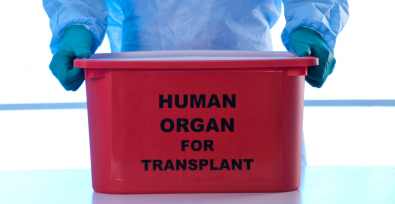Organ trading is a lucrative industry generating up to US$1.7 billion annually. The problem? About 10 percent of all transplants are believed to be illegal. As explained in an article by the Harvard International Review, the limited supply of legal organs cannot meet the rapidly growing demand. In the U.S. alone, 100,000 people were on the national organ waiting list in 2023. This need is what continues to fuel the black market for the trafficking of organs in Asia.
An industry that thrives on the impoverished
The world’s largest illegal organ trade currently operates across India, Nepal, Bangladesh, Pakistan, Sri Lanka, and Iran. This underground industry targets victims from marginalized communities such as Central Nepal’s Kavre District, commonly known as the “Kidney Valley.” Many villagers in Kavre consider organ selling a “job” and voluntarily sell their kidneys without understanding the consequences. They are paid only a fraction of what a kidney is worth, deceived into thinking there will be no complications, and often told their kidney will grow back.
The article also highlights similar challenges faced by Vietnam:
“In April 2023, the Vietnamese Ministry of Public Security discovered and disbanded a human organ trafficking ring in Hanoi, Vietnam. Organ recipients who purchased livers through this ring paid around US$50,000. However, sellers were given just under US$20,000.”
Recruitment methods akin to human trafficking
Traffickers employ a range of methods to recruit and exploit victims. Like human trafficking, these methods include fraudulent job offers, withholding of passports, threats, and physical abuse. Organ buyers also use social media platforms by opening support groups and pretending to be the relatives of someone in need of an organ. Another method used to obtain illegal organs is “Transplant Tourism.” Exploiting the economic inequality of poor countries, wealthy individuals from high-income countries travel to low-income destination countries to obtain organs.
The organ trade is facilitated by a network of corrupt officials, medical professionals, and brokers who ensure that the transactions remain hidden from authorities. For example, soliciting organs over social media also allows brokers to change identities often to avoid tracking by law enforcement. Despite international efforts to combat organ trafficking, such as the Istanbul Declaration on Organ Trafficking and Transplant Tourism, organ trade continues to flourish.
Dr. Sanjay Nagral, co-chair of the Declaration of Istanbul Custodian Group, said:
“there is “big money” in organ transplants and a supply of rich individuals who need organs and are willing to pay whatever is needed to get them.”
Band-aid solutions?
Countries such as China and Indonesia have also taken steps to address the illegal organ trade. China implemented a monitoring system in 2014 to prevent the private sale of donor organs, but concerns remain about the lack of transparency and the role of military hospitals in illegal transplants. Indonesia signed international treaties like the Palermo Convention and the ASEAN Convention Against Trafficking to combat organ trafficking. However, Indonesia remains heavily involved in the illegal organ trade, causing officials to view the treaties are solely symbolic.
Economic hardships are a systemic cause of this thriving industry. The article emphasizes that addressing the root causes of poverty and inequality in poor regions is crucial to reducing the supply of victims who feel compelled to sell their organs. At Freedom United, we believe that collective action by lawmakers, international human rights groups, and the public is vital in addressing these severe violations. By raising awareness and mobilizing support, we can confront the root causes of organ trafficking and safeguard vulnerable communities. It’s also essential to criminalize receiving transplants from unethical sources and promote informed consent. Stand with us and sign our petition today to help end forced organ harvesting and protect human dignity.








Freedom United is interested in hearing from our community and welcomes relevant, informed comments, advice, and insights that advance the conversation around our campaigns and advocacy. We value inclusivity and respect within our community. To be approved, your comments should be civil.